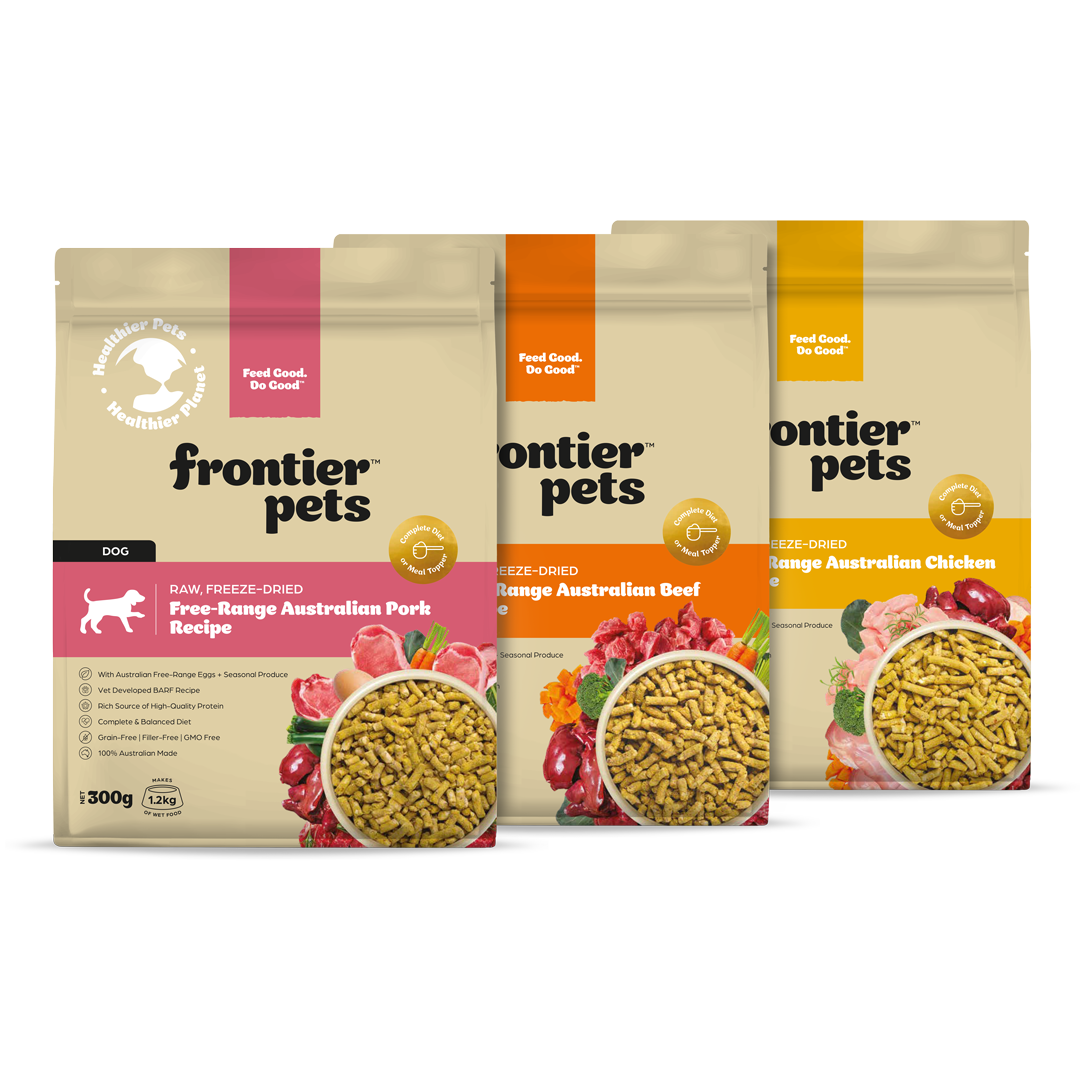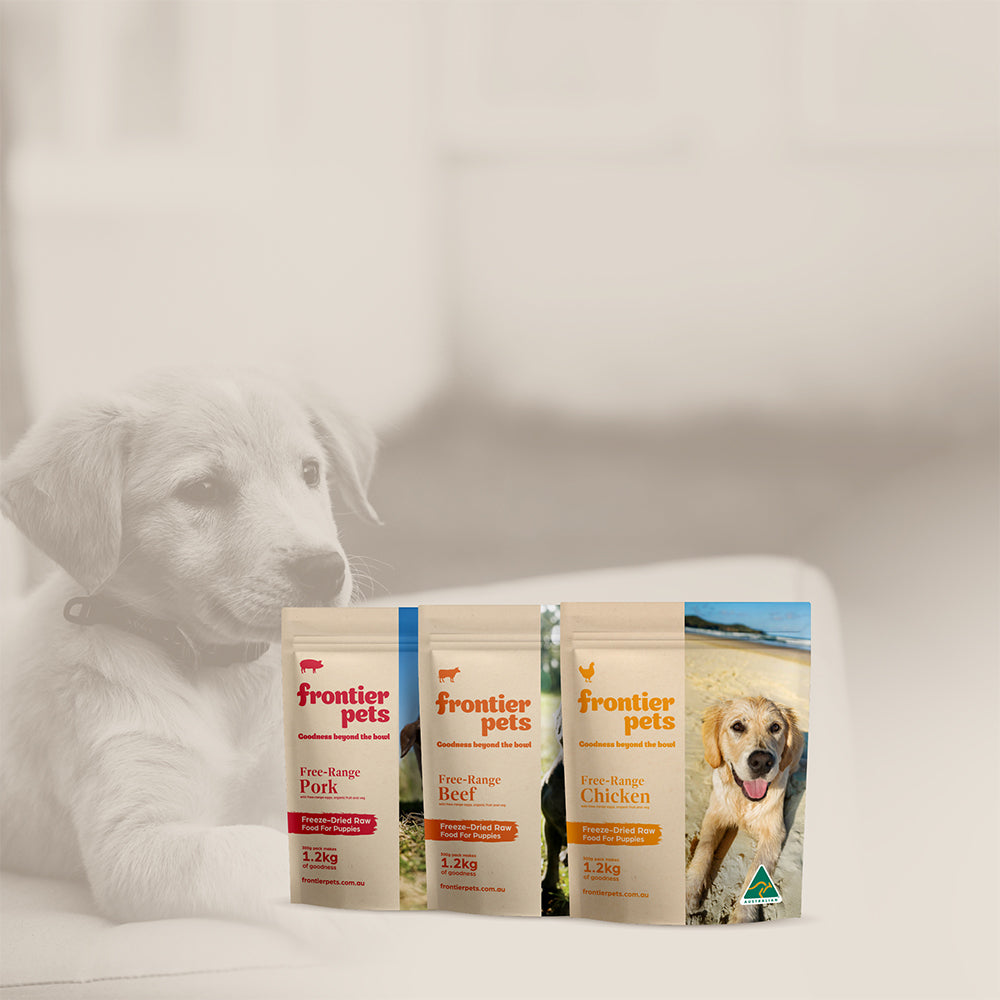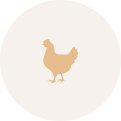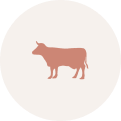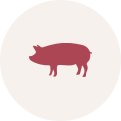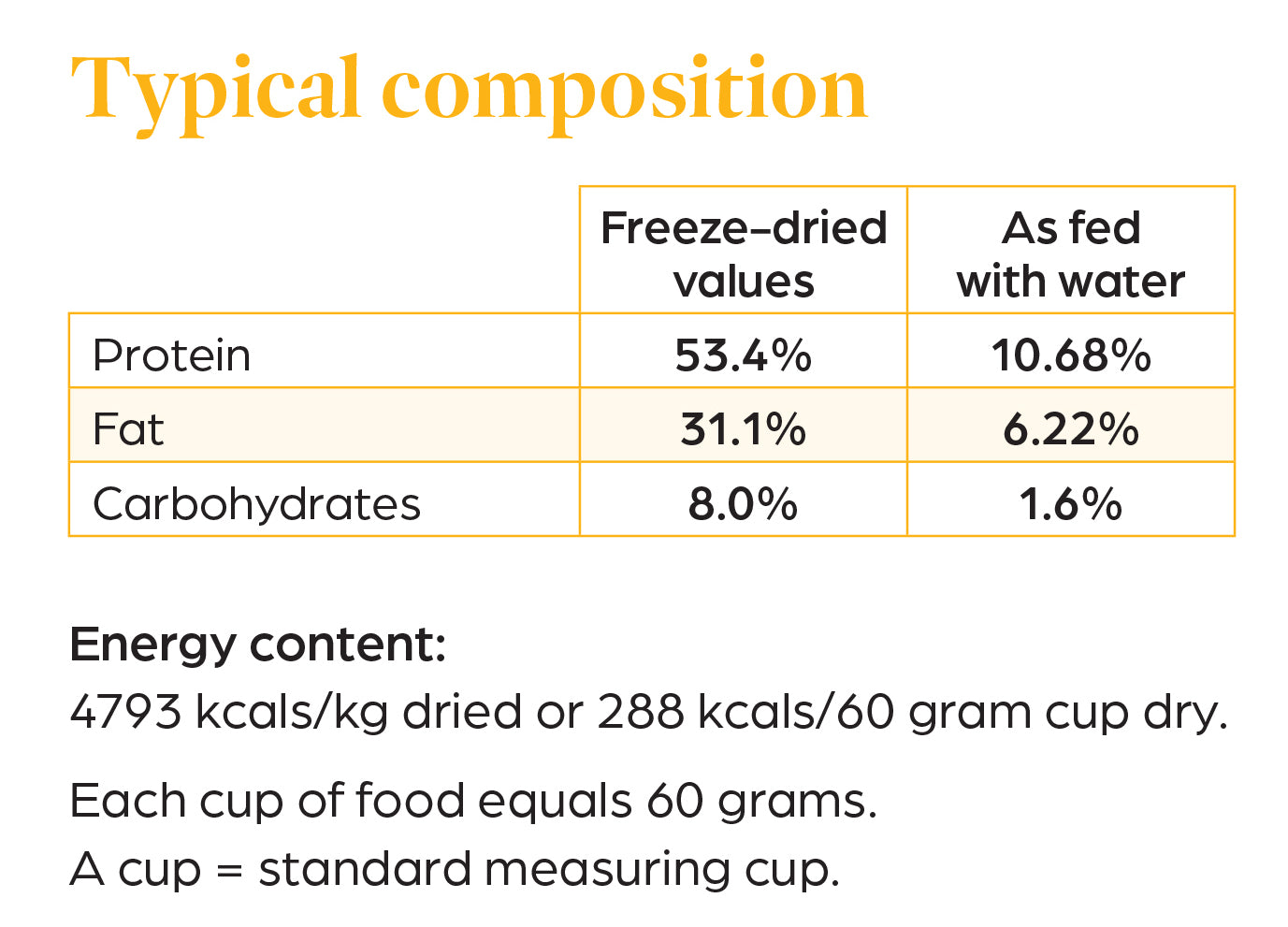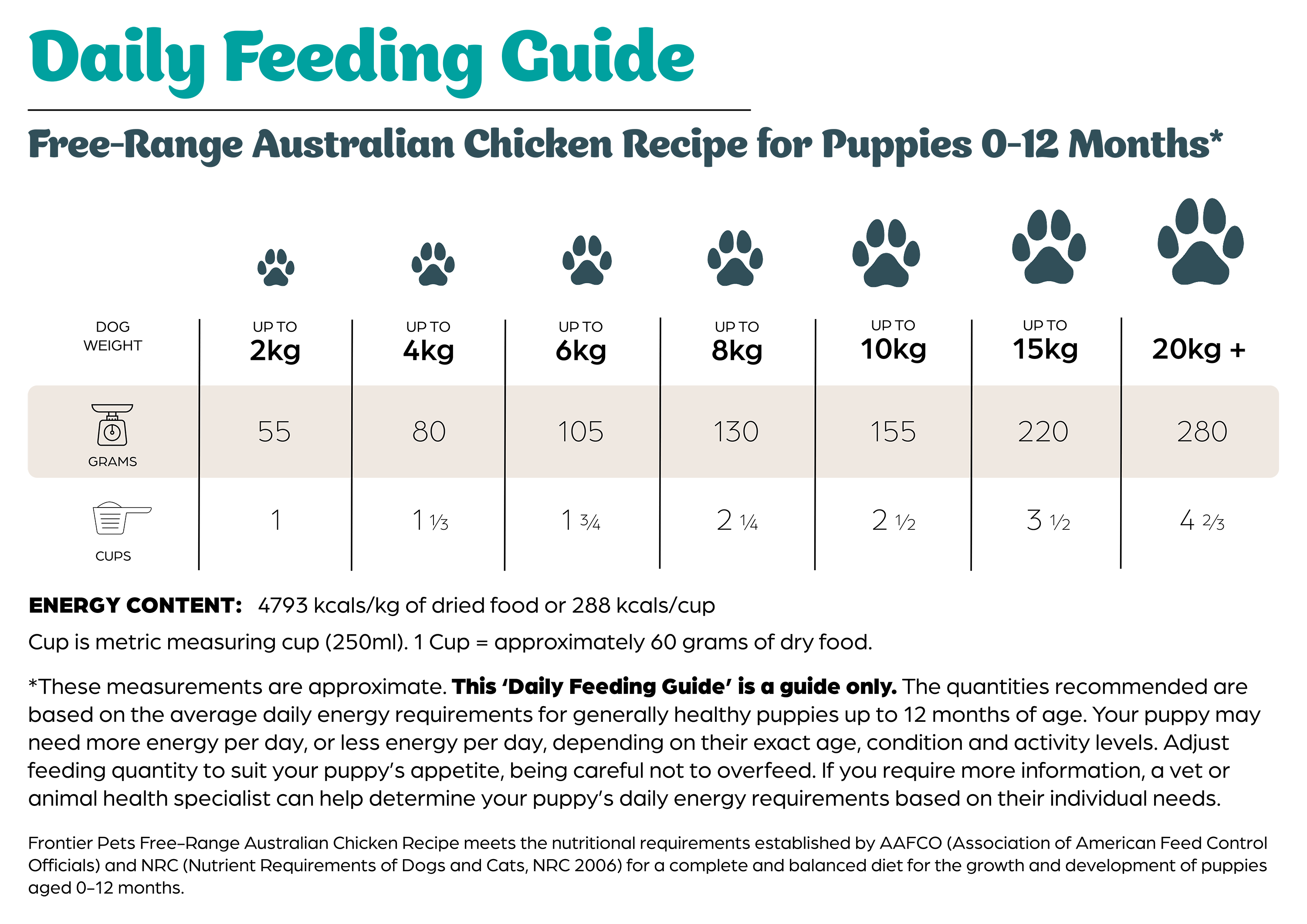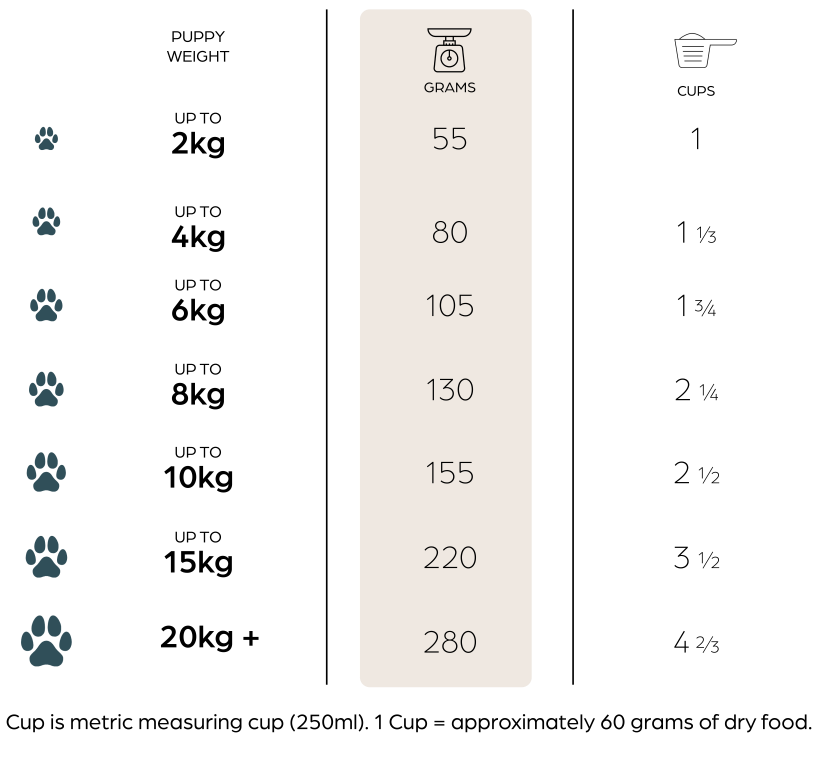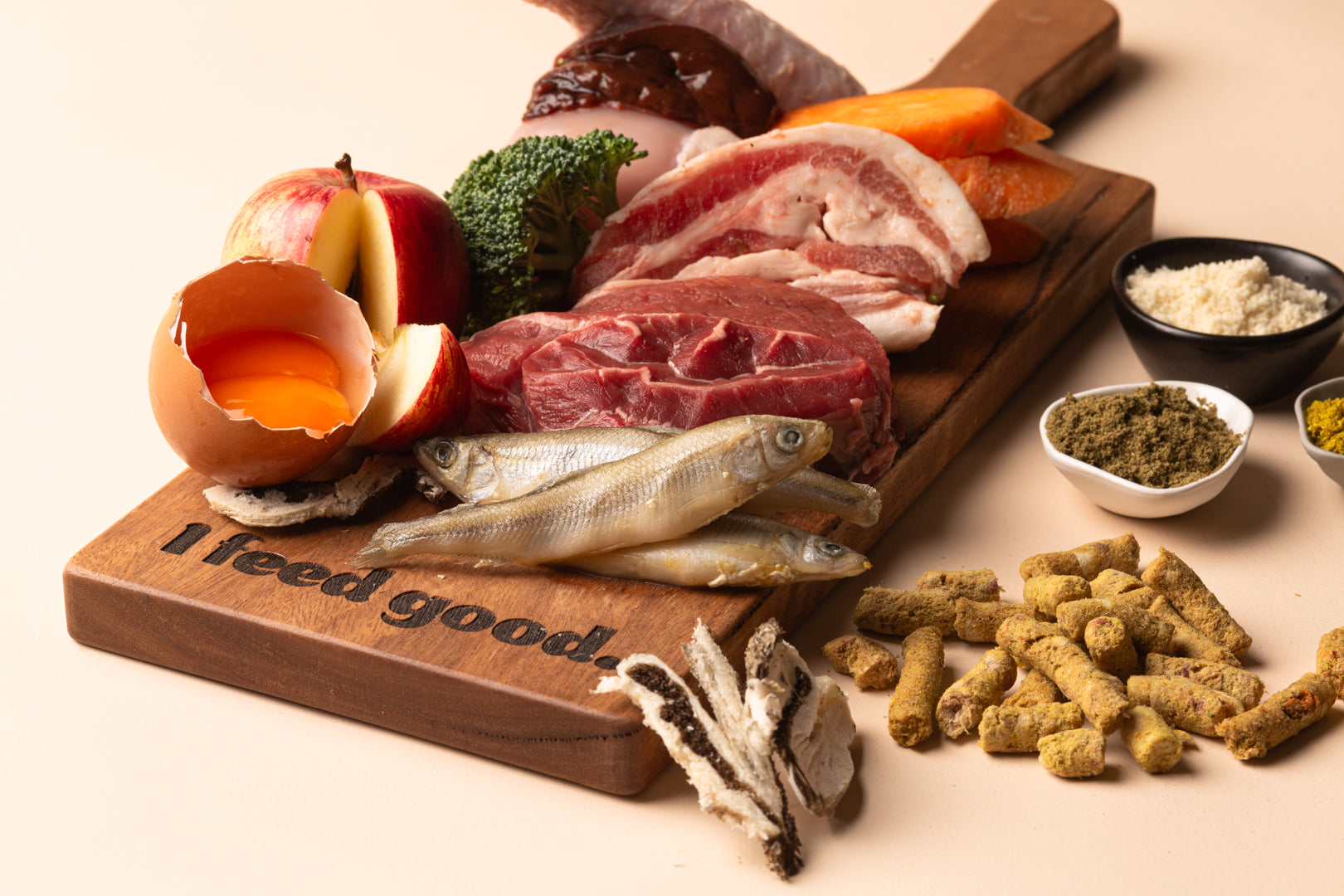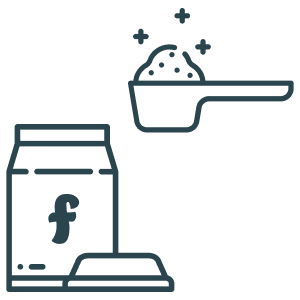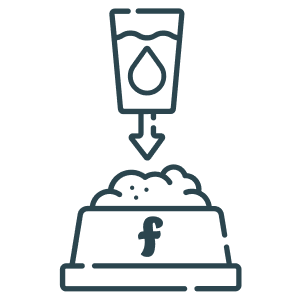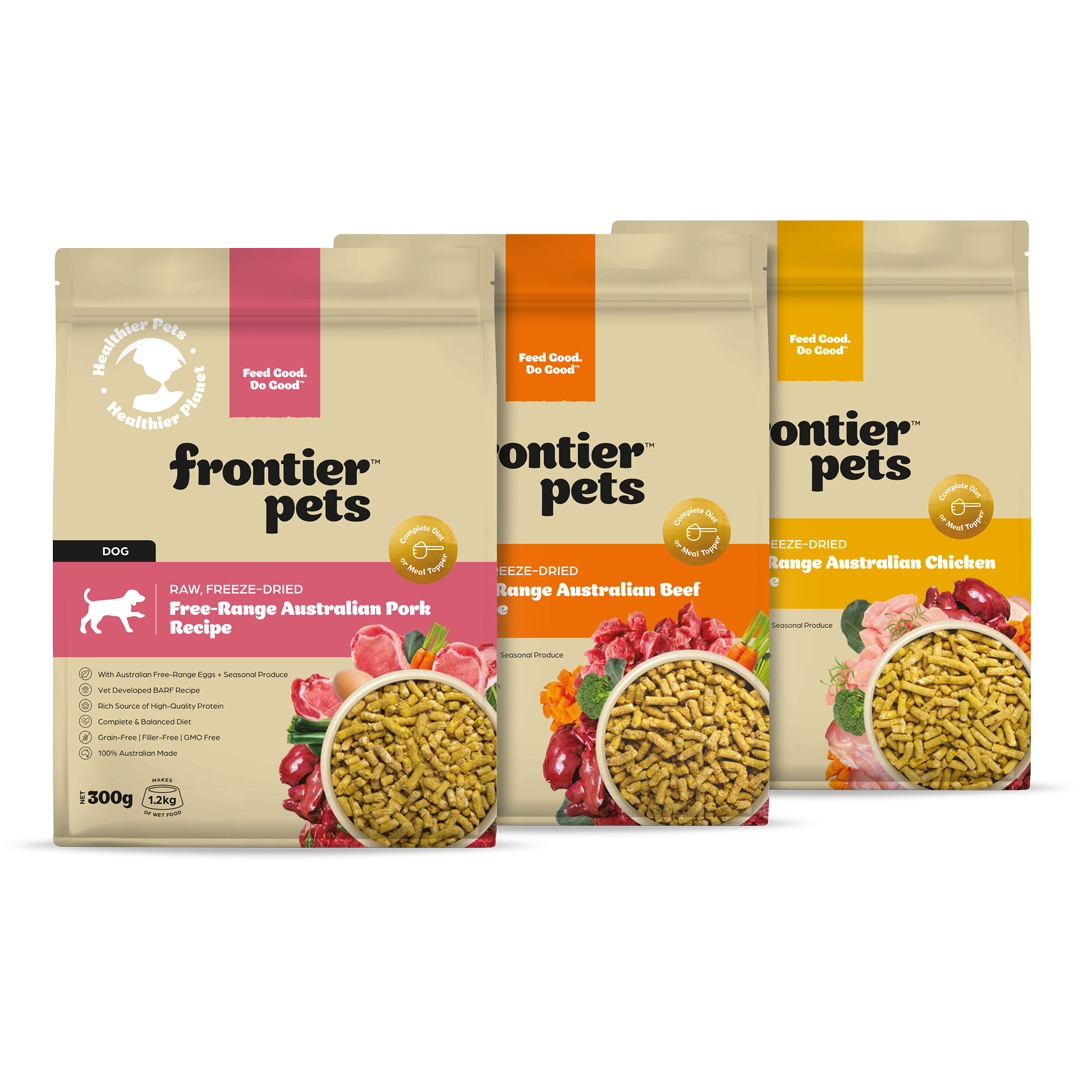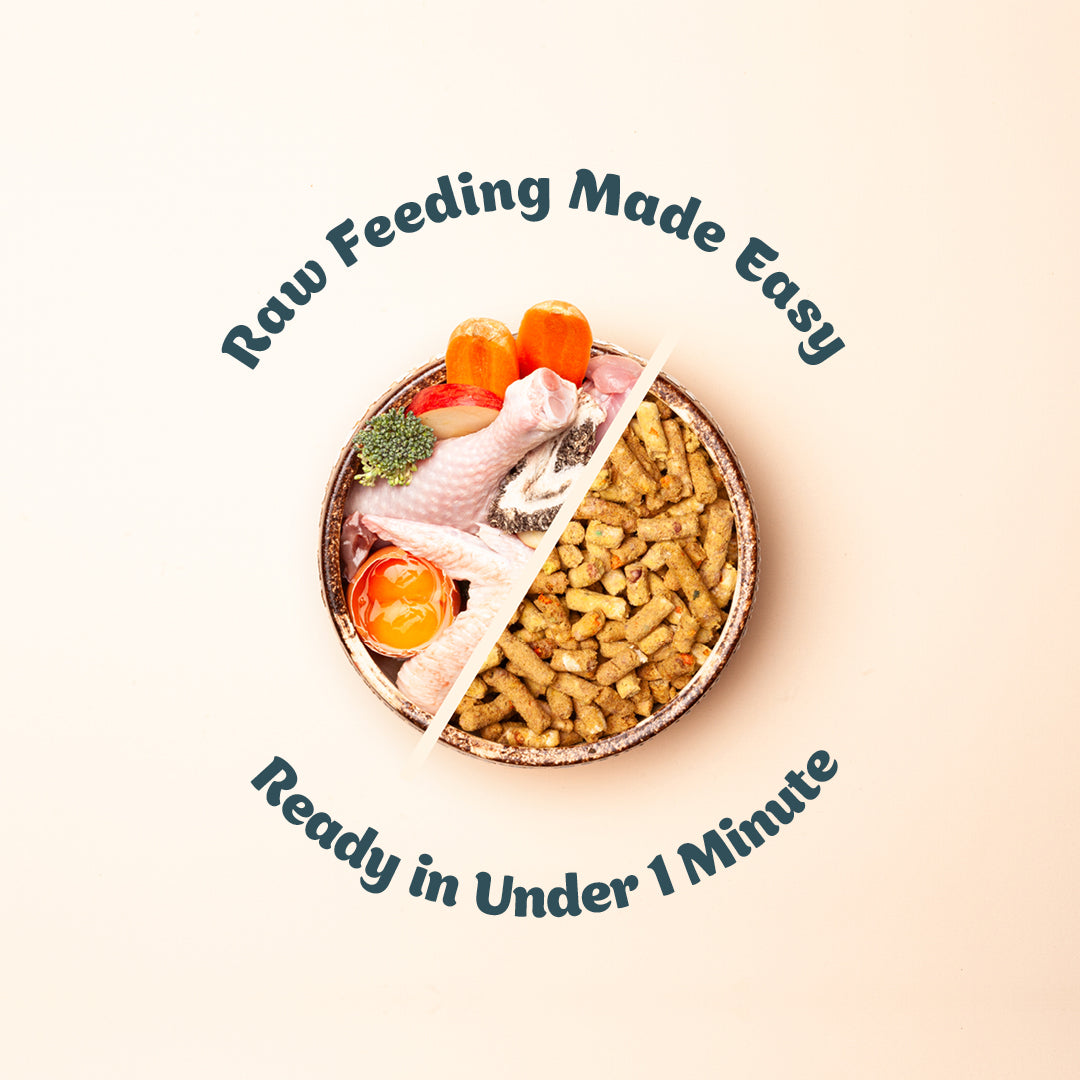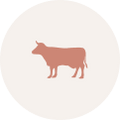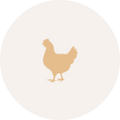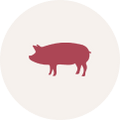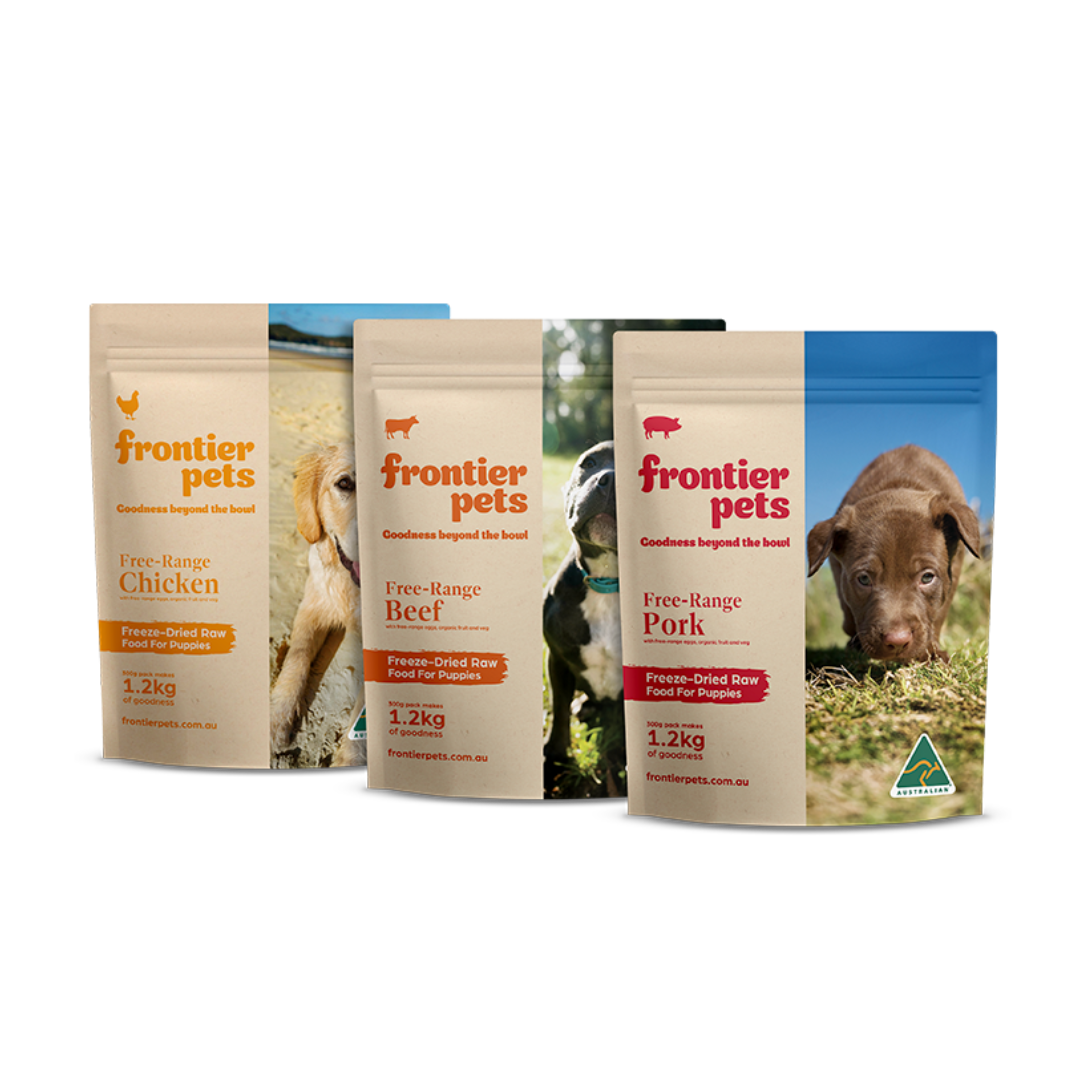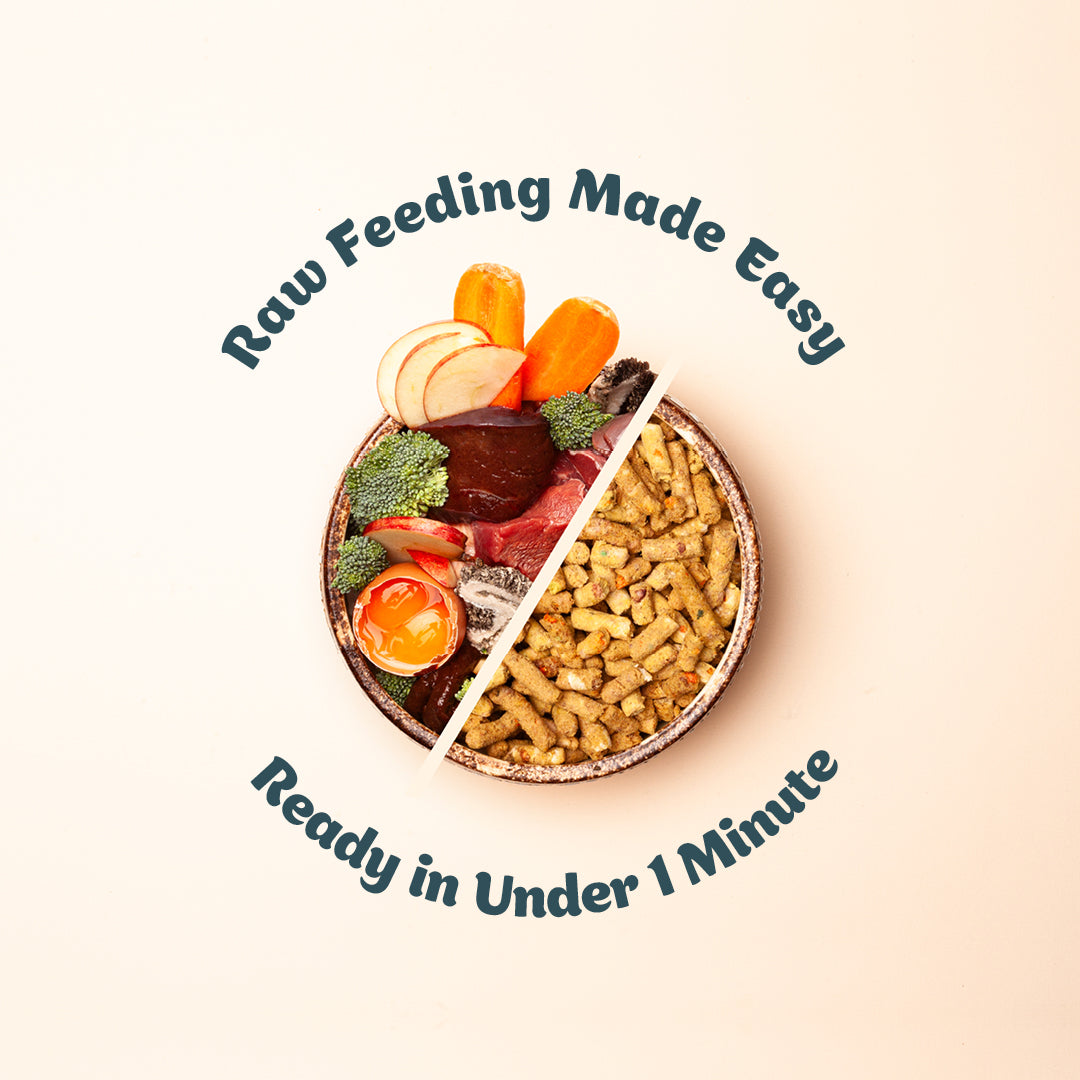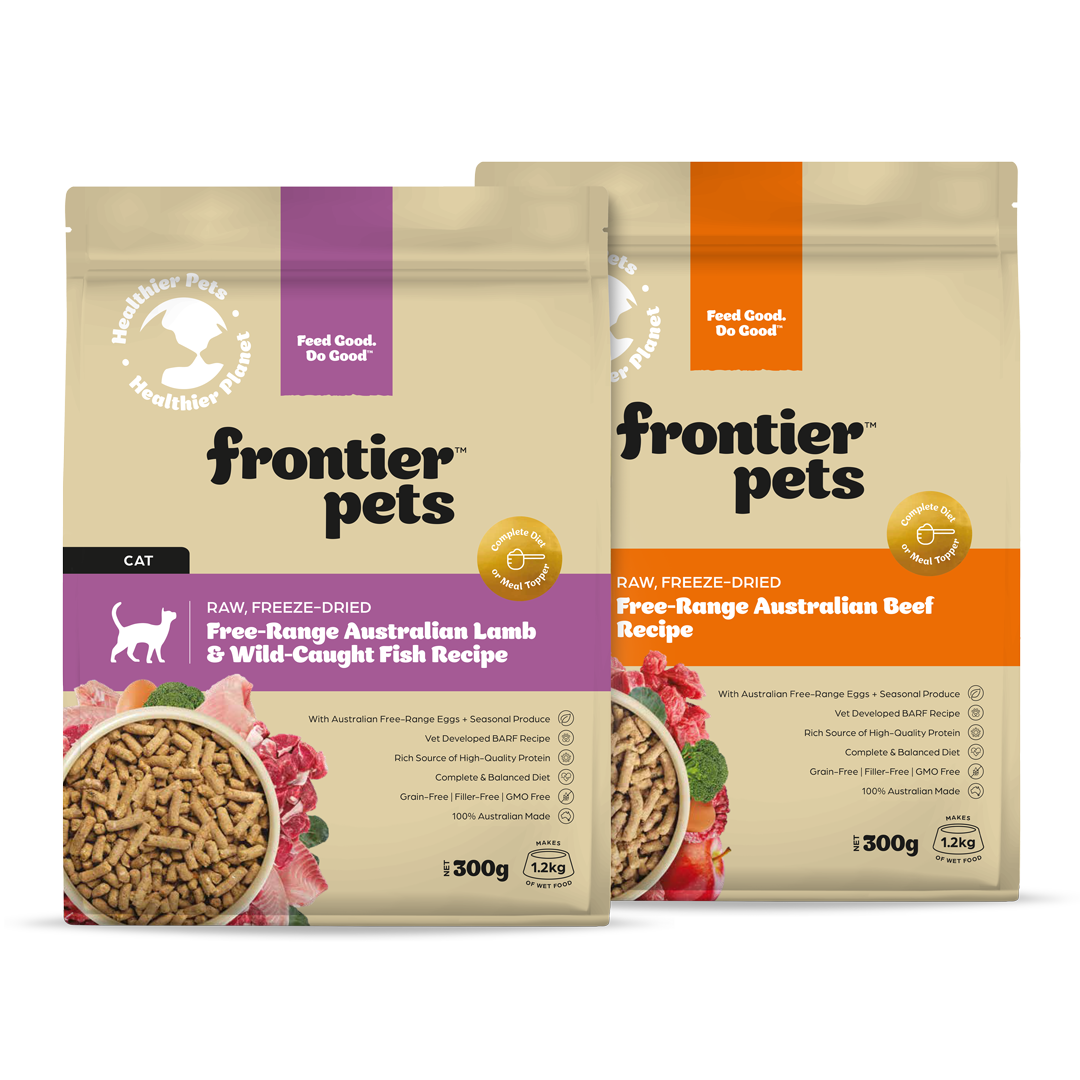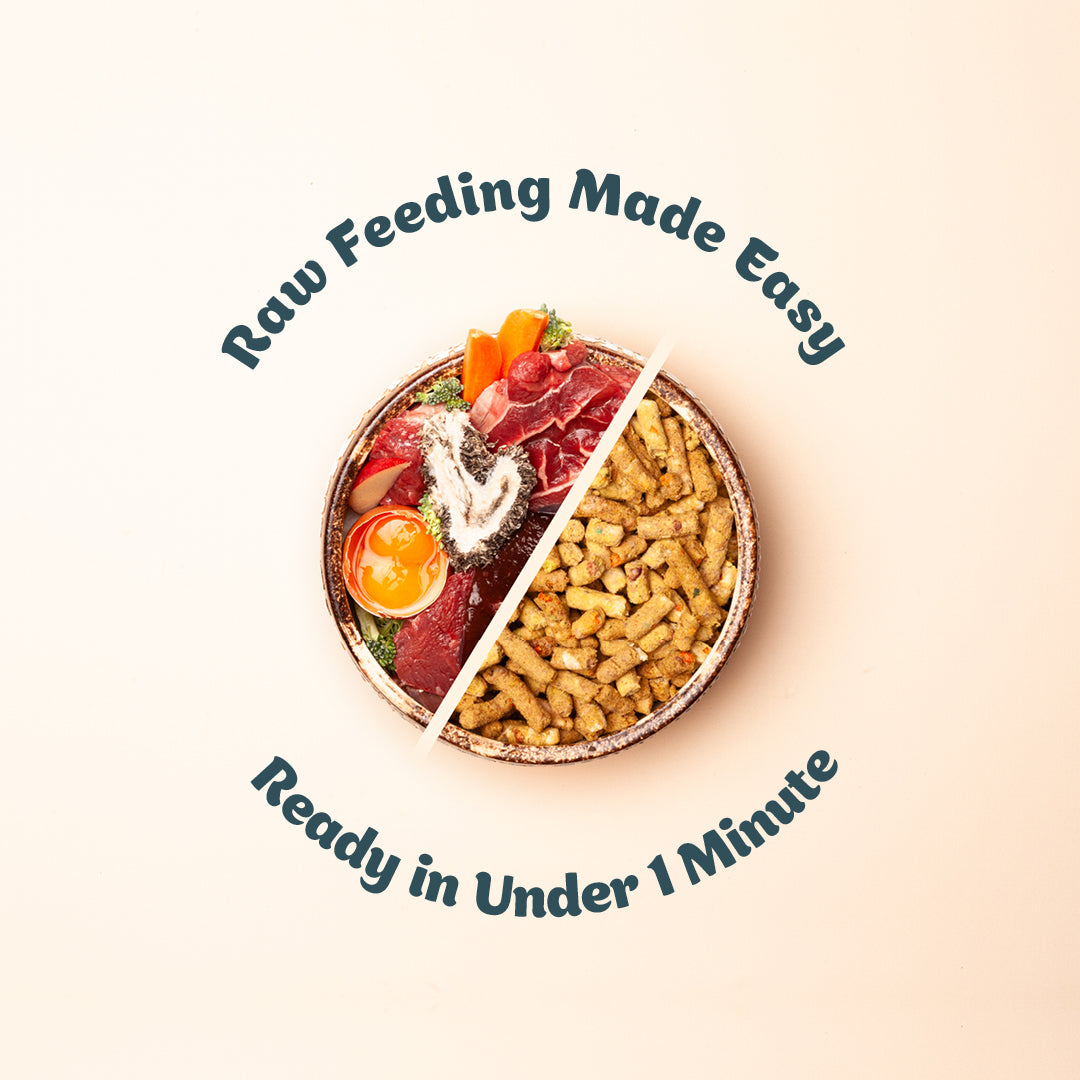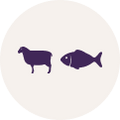Choose options
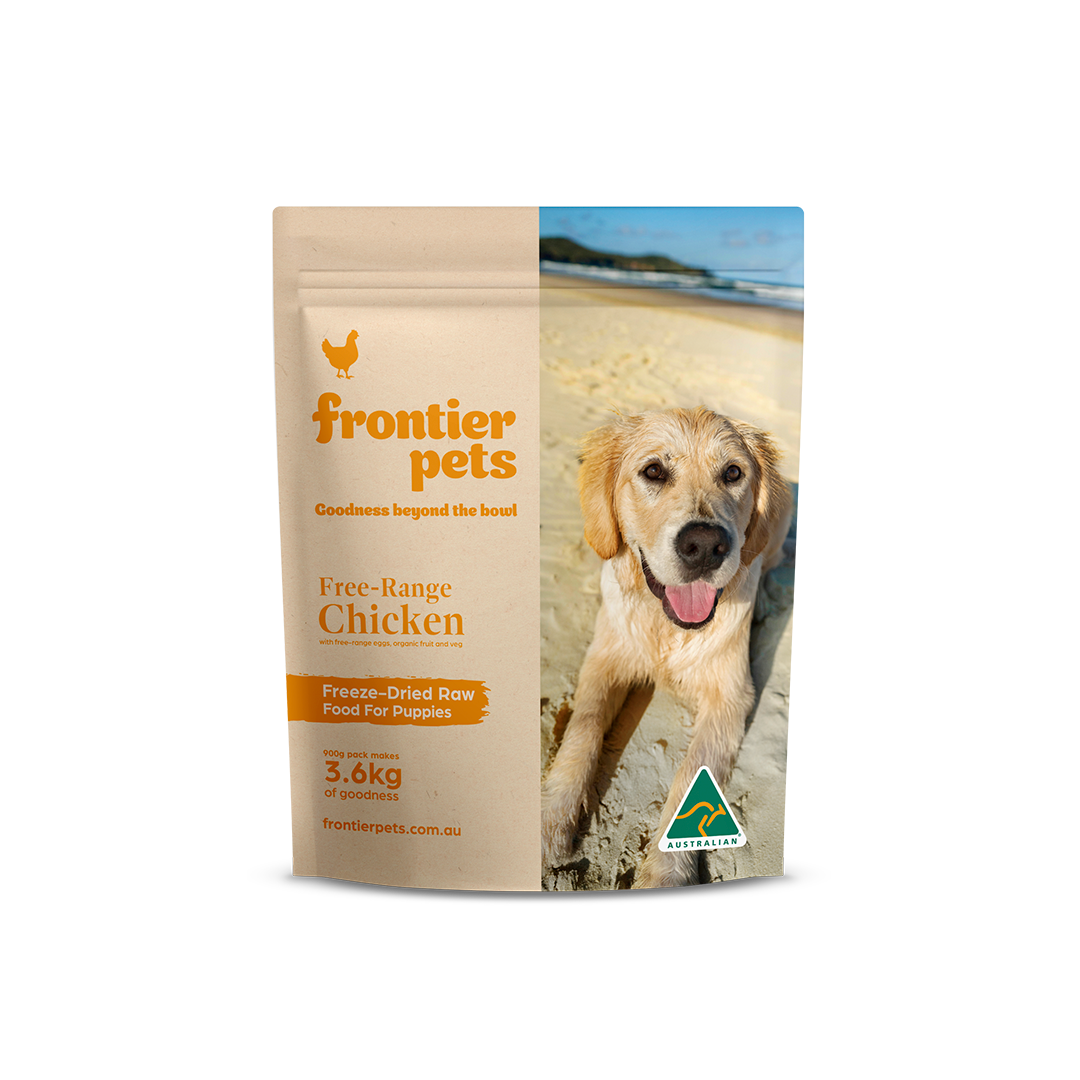


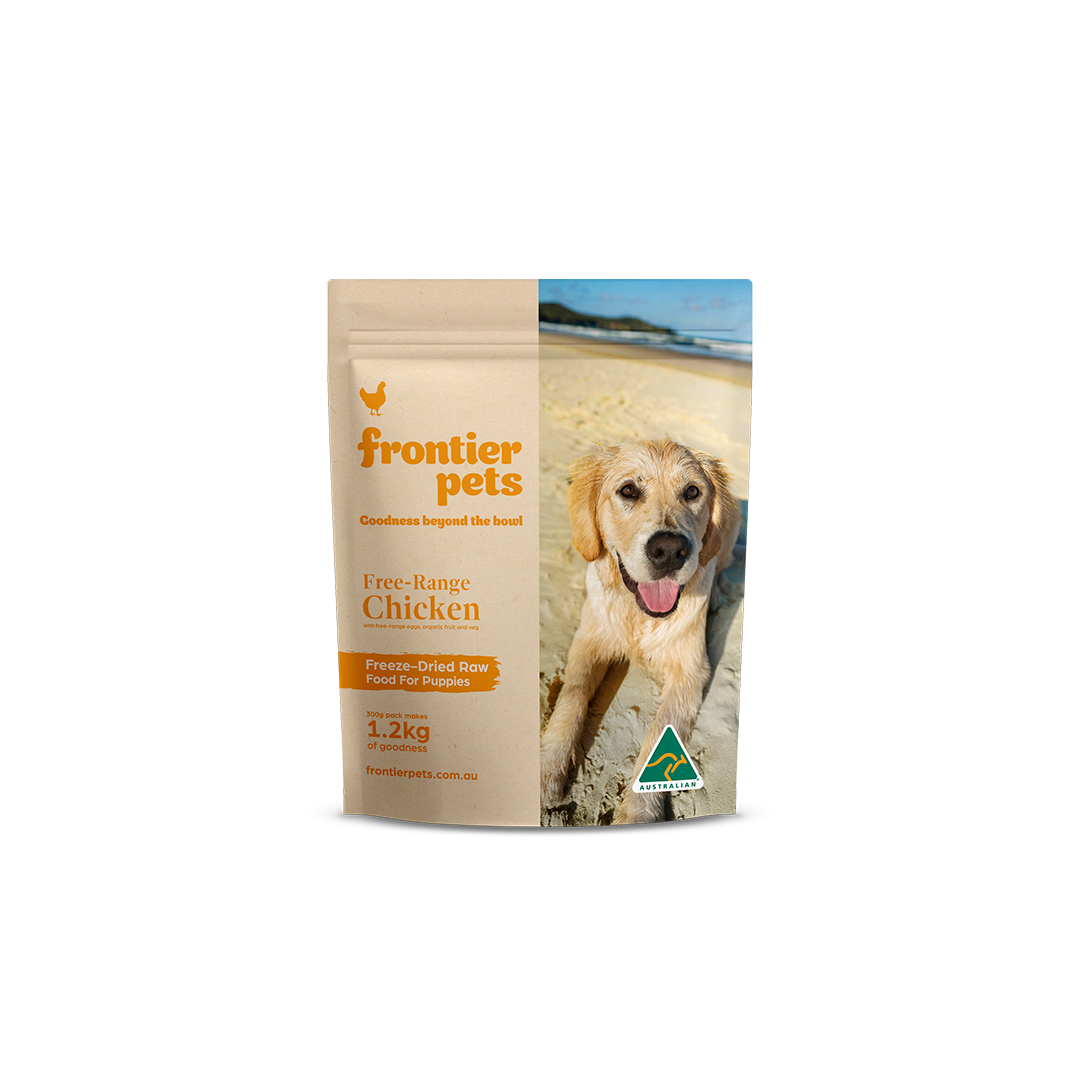
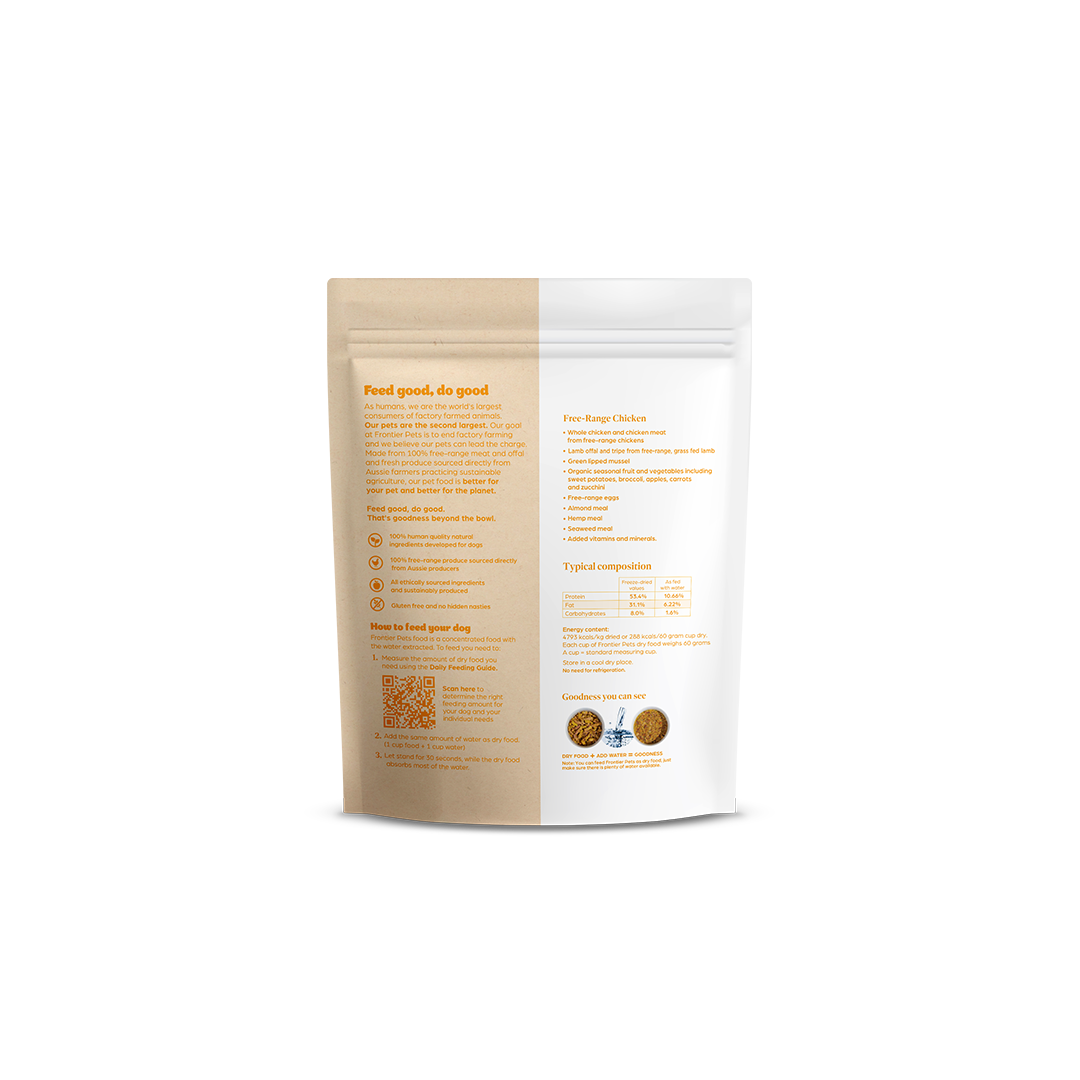
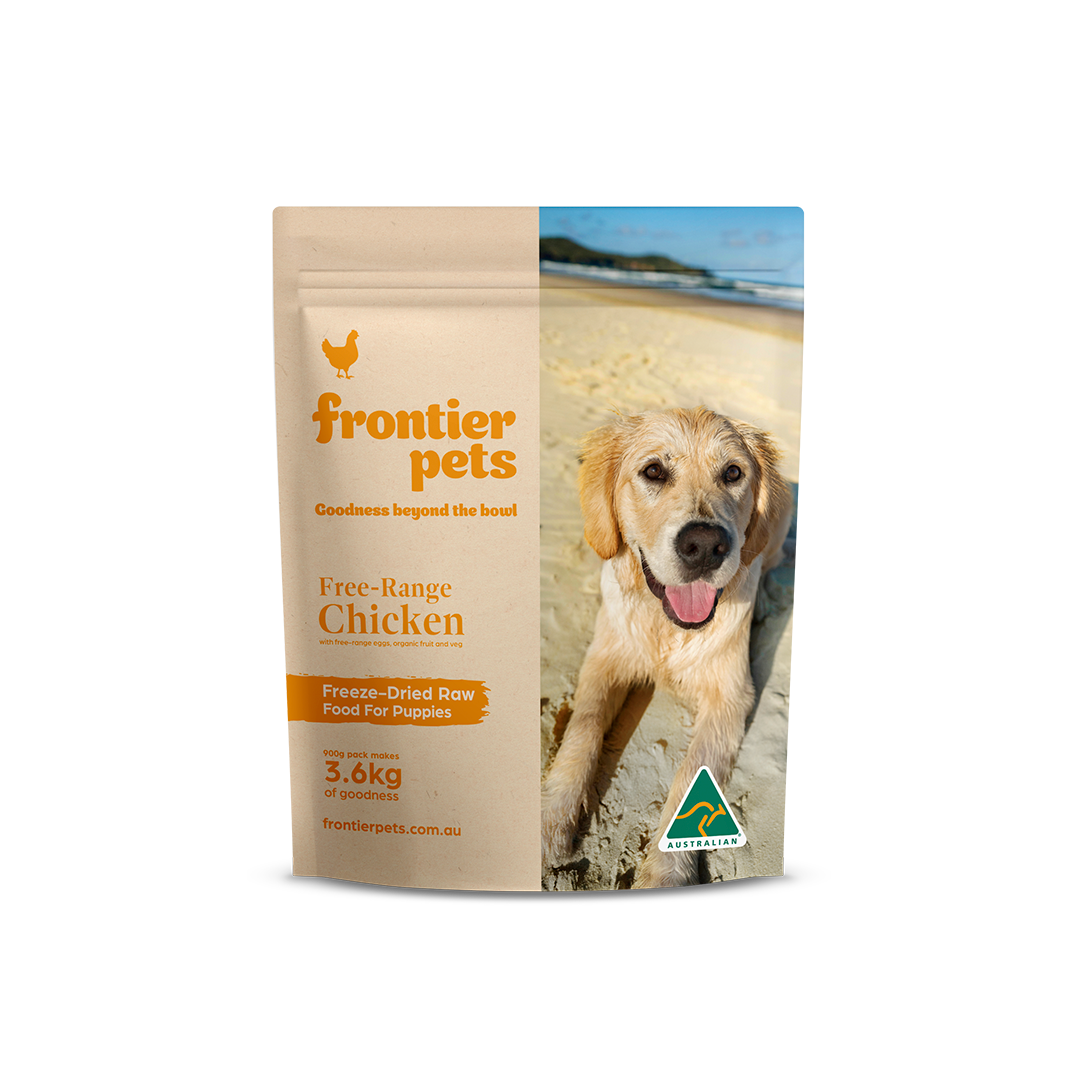
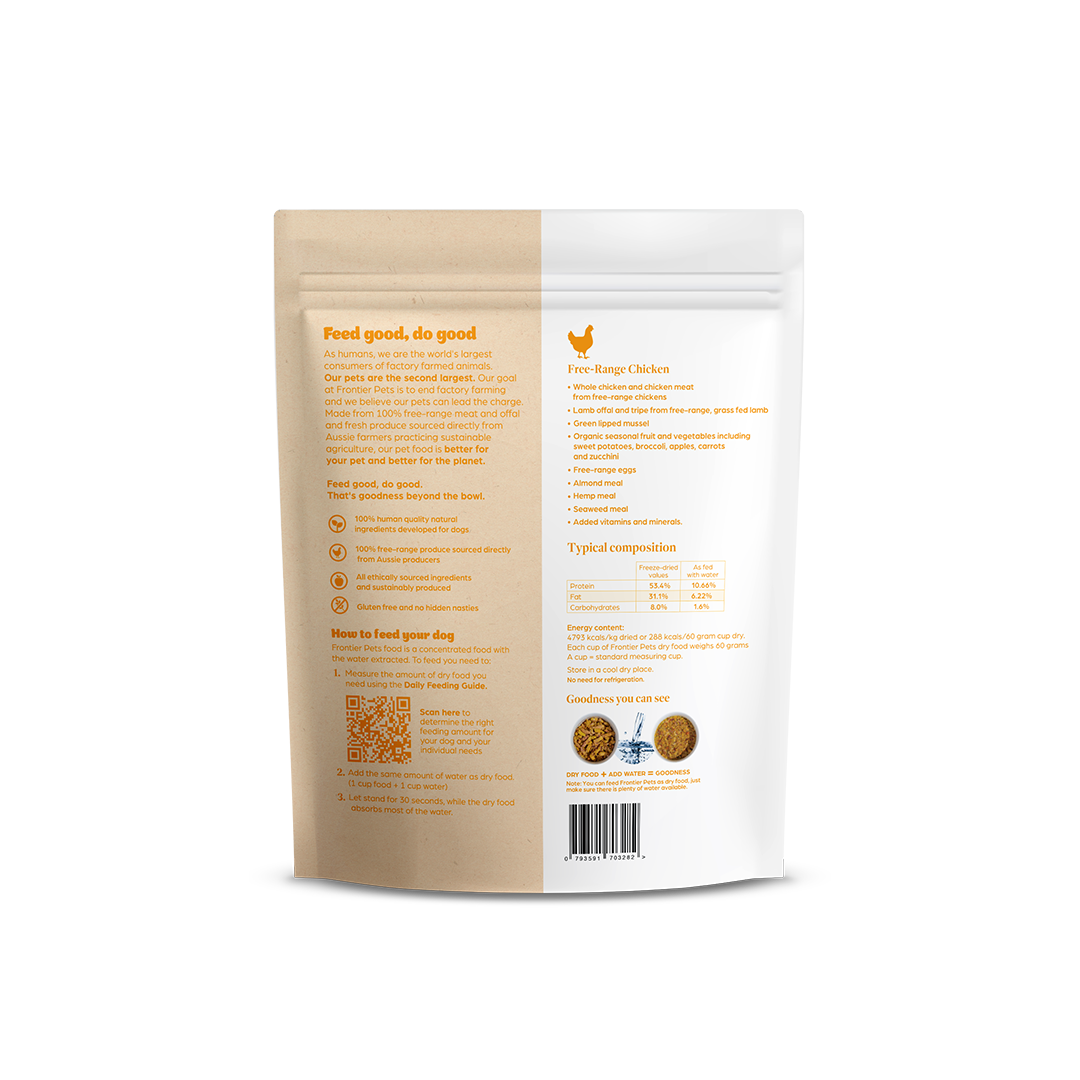
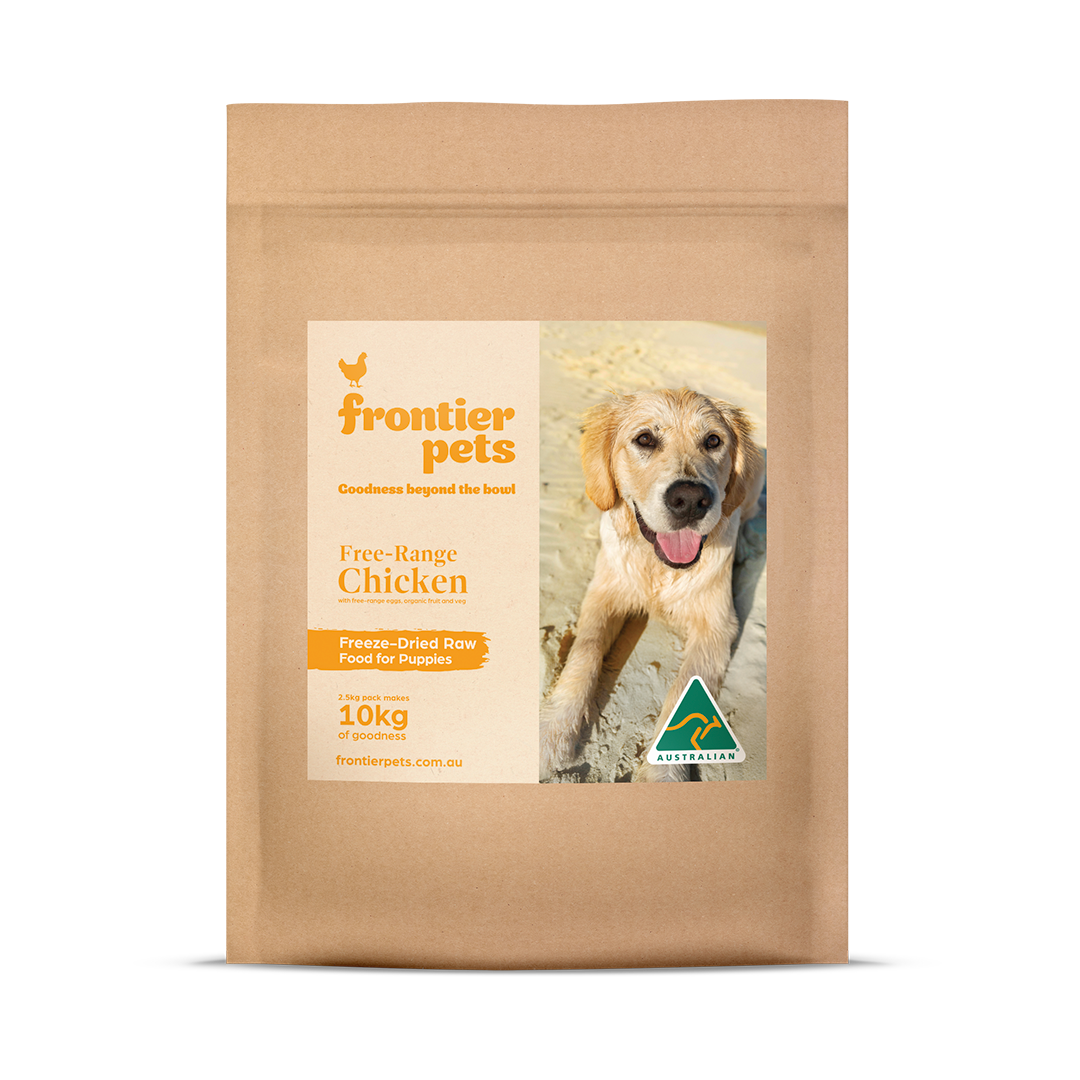
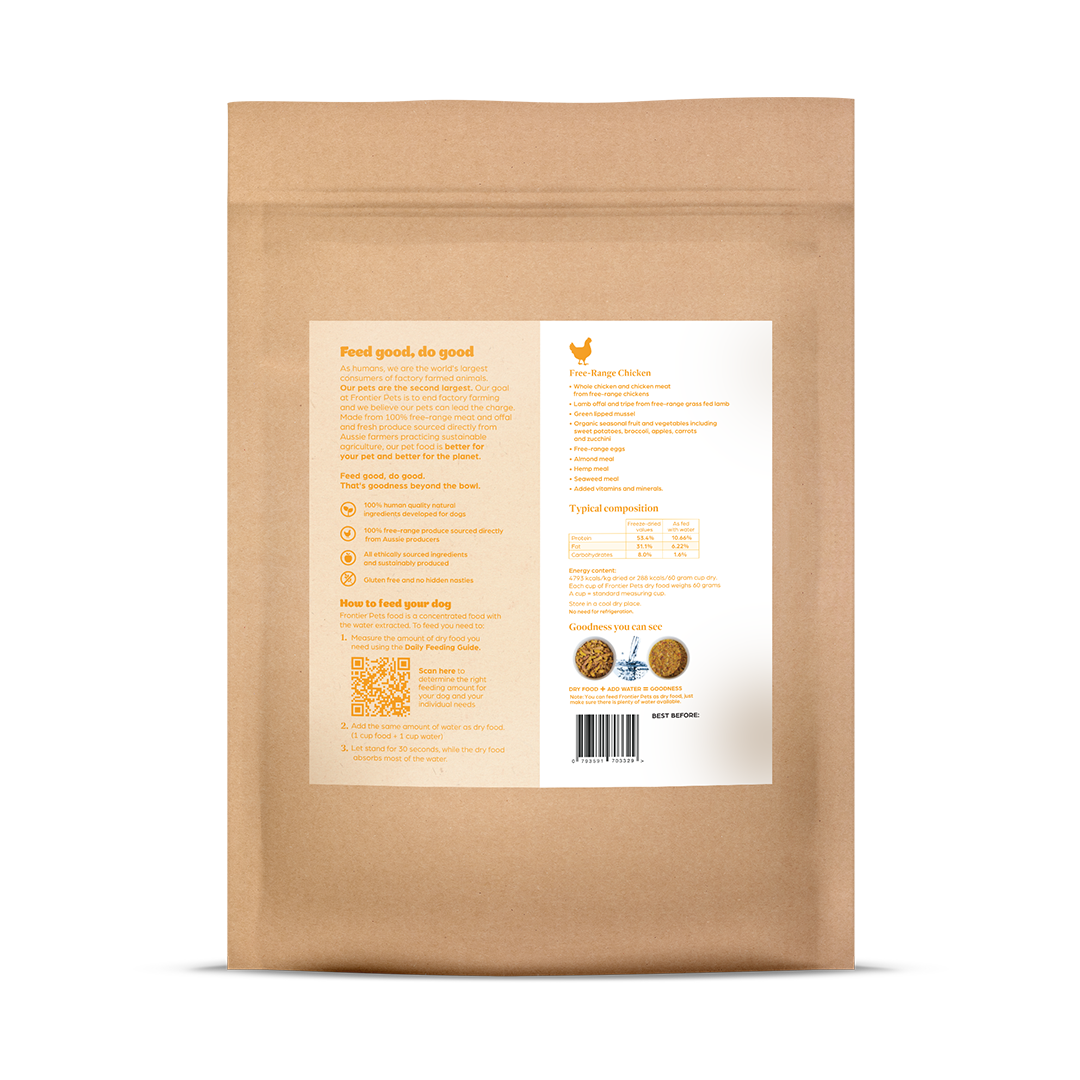
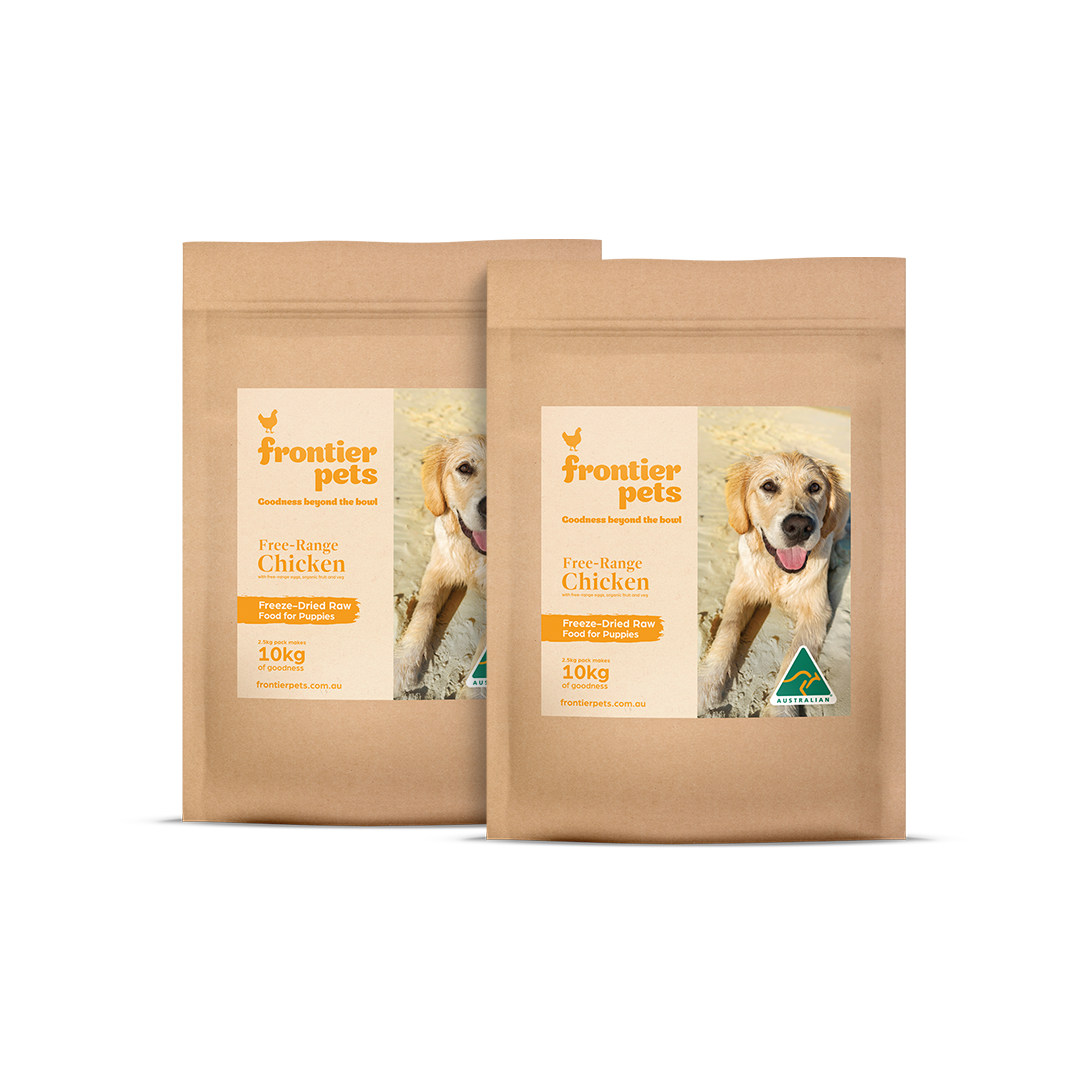
Tell us more about your dog
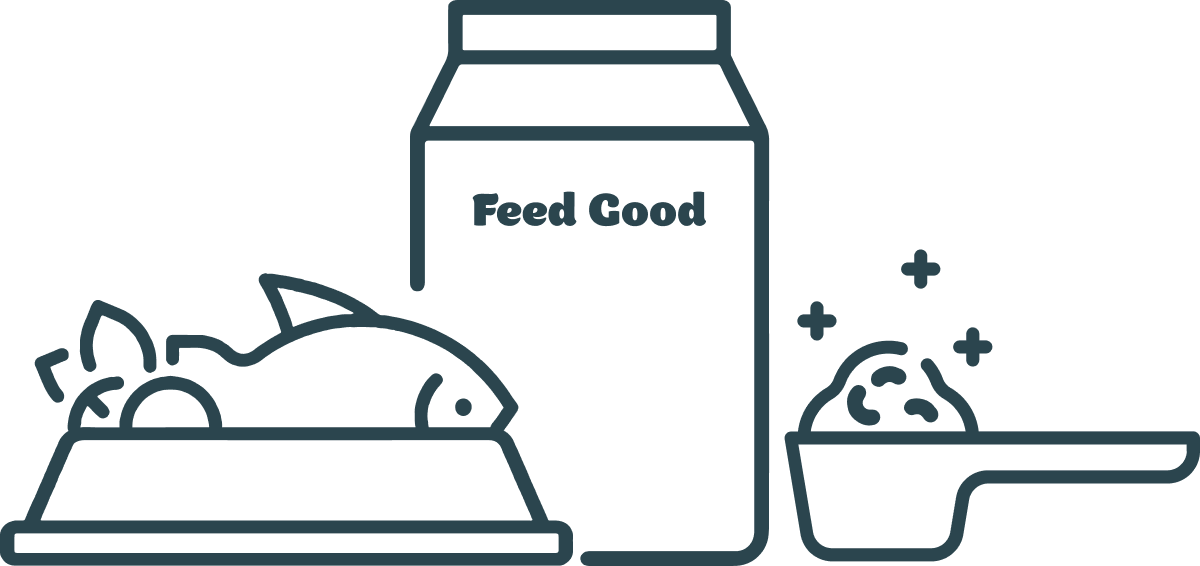
Give your pets meals a boost by using Frontier Pets food as a topper or for occasional feeding. Add to your current feeding regime by adding 20% of the daily feeding amount to 80% of their current diet.
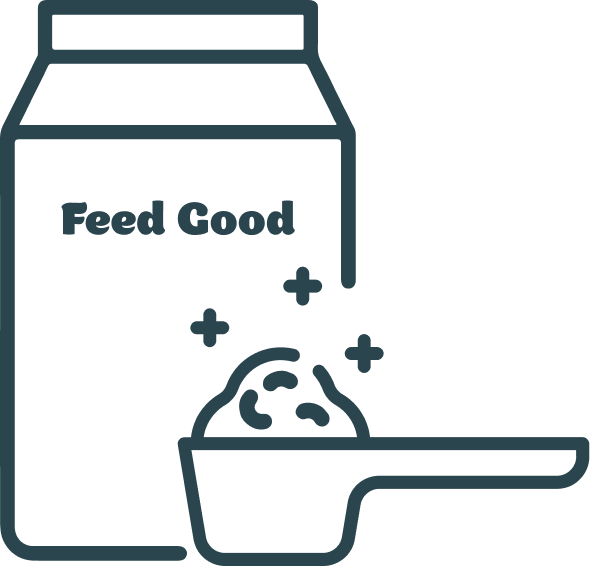
A must for fussy animals or those that want to feed a variety. Substitute 50% of your pet’s current diet with Frontier Pets food. Either as one meal a day or with the existing food.
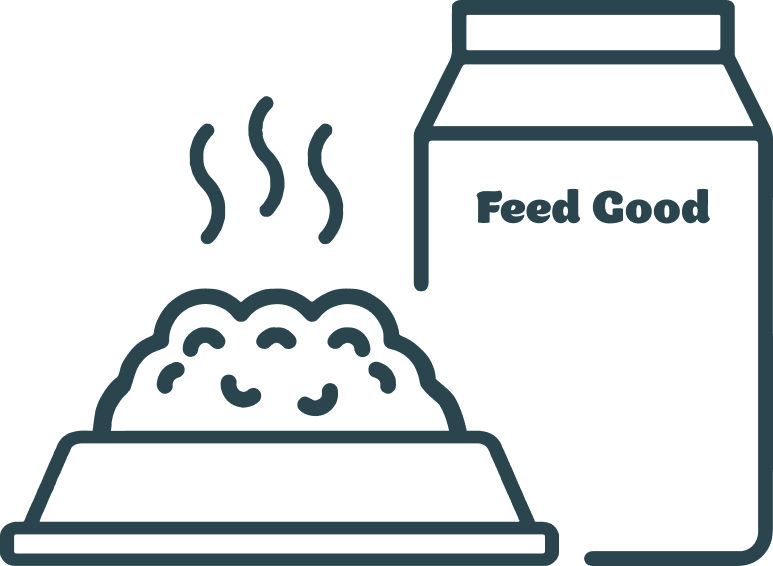
Over-the-top nutrition with ultra-convenience. Feed Frontier Pets food 100% of the time. Change varieties often to maintain interest.
How to transition your puppy to raw food diet
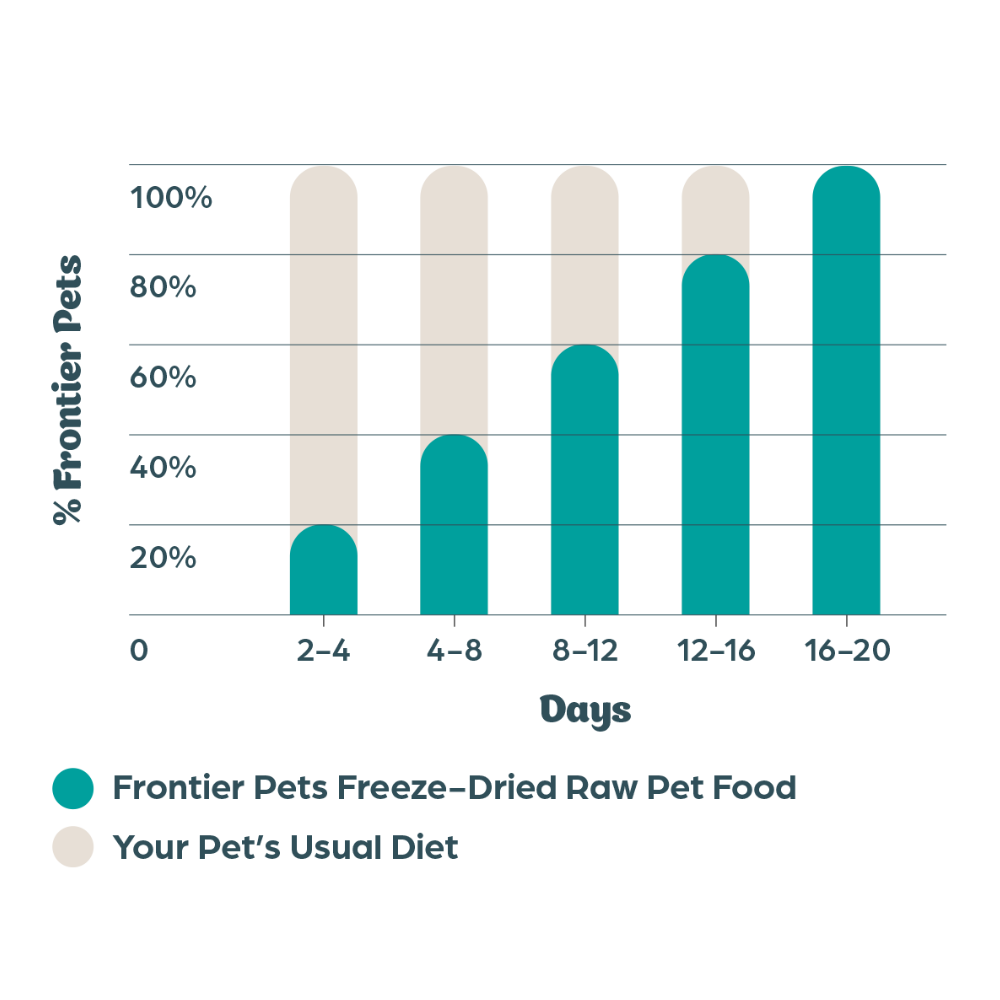
If your puppy has been on a diet of dry kibble and/or processed wet food, it’s important to transition gradually to raw feeding as a complete balanced meal.* Raw food is digested differently to processed food. Transitioning too quickly to raw feeding can upset your puppy's stomach.
Similarly, if your pet is used to dry kibble or canned food, they may be fussy with raw food at first, so gradually introducing raw food will help their taste buds adjust.
- Start with 20% Frontier Pets Raw Freeze-Dried food and 80% of your pet’s 'usual' food.
- Feed 20/80 ratio for 2-4 days, and if there are no major concerns, adjust the ratio to 40/60 for the next 2-4 days.
- Increase Frontier Pets puppy food by 20% every 2-4 days until you are feeding 100% of Frontier Pets food as a complete balanced meal.
This guide only follows general Vet advice for transitioning to raw feeding. However, every pet is unique, and they may transition at a different pace. If you have any concerns, contact us at or consult your Vet or Animal Health Specialist.
*Frontier Pets Freeze-Dried Raw Pet Food can be used as a complete balanced meal for 100% raw feeding, or as a Topper for a raw nutrient boost to their usual meals. See our Feeding Guide for details.
So far we've spent
ON SUSTAINABLY FARMED PRODUCE
Need help?
Frequently Asked Questions
The typical answer for this is after 12 months, your pups can transition to adults dog food.
However, this also depends on your puppy's breed size. Giant and large breeds typically transition around 12-18 months, while smaller breeds can move to adult food as early as 9 months.
For a more specific timeline, consult with your veterinarian to determine the best transition period for your puppy based on their individual needs and growth rate.
Puppies have higher metabolisms than adult dogs and need more frequent meals.
Generally, puppies up to 4-6 months old need 3-4 meals a day. This can gradually be reduced to twice a day as they grow older.
Yes, freeze-dried dog food is great for teething puppies because it becomes soft and easy to eat when water is added. This makes it easier to chew and more appealing for puppies with sore gums and reduced appetite.
While there's no magic food that cures teething pain, there are some puppy-safe options that can soothe their gums and provide a satisfying chew during this uncomfortable time. Here are a couple of great choices:
- Frozen Fruits and Vegetables: Chopped and frozen fruits like bananas or carrots (minus pits and seeds!) act as a cold teething toy. You can even spread them on a lick mat and freeze it for extended enjoyment.
- Freeze-Dried Raw Puppy Treats: These treats, like freeze-dried chicken neck or chicken hearts, are packed with nutrients and have a chewy texture that's perfect for satisfying your pup's urge to chew.
The good news is that pork is generally safe for dogs and puppies to eat, so there's no need to worry.
However, it's worth noting that in the past, pigs were known to carry a worm that could cause illness in both animals and humans. But don't fret, Australia has been free of any harmful pig-related issues for many decades now.
If you're considering feeding your dog and puppy pork, you might want to check out our Frontier Pets food.
We take pet safety very seriously and employ several measures to ensure the quality and safety of their pork products. Our pet food is freeze-dried, which means there's no moisture to harbor bacteria and we also conduct microbiology tests on all our products to confirm the absence of any harmful substances.
So, if you decide to go with Frontier Pets' pork products, you can rest assured that you're feeding your pup something not only delicious but also safe.

